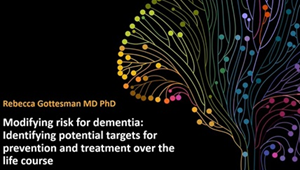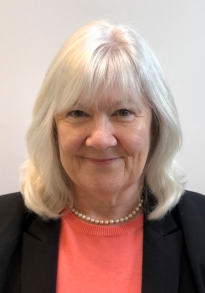Linda K. McEvoy, PhD
Biography
Linda K. McEvoy, PhD, is an experimental psychologist and neuroscientist with acquired expertise in aging epidemiology. As a senior investigator at Kaiser Permanente Washington Health Research Institute (KPWHRI) and professor emerita at the University of California San Diego, Dr. McEvoy works to improve the understanding of cognitive and brain changes in typical aging and in neurodegenerative disorders such as Alzheimer’s disease. Her mission is to better understand the factors throughout the life course that affect cognitive and brain health in aging, in order to develop strategies to maintain cognitive health and reduce risk of dementia.
Before joining KPWHRI, Dr. McEvoy was a professor of public health and radiology at UC San Diego, where she conducted research on longitudinal cohort studies to identify typical patterns of changes in brain structure with aging and to distinguish them from patterns associated with early Alzheimer’s disease. Her research also sought to identify genetic, health, and behavioral risk factors associated with higher rates of cognitive decline with age and with dementia.
She was one of the principal investigators on the Rancho Bernardo Study of Healthy Aging, initiated in 1972. She assumed a leadership role on this study in 2014, expanding data collection to include neuroimaging and directing the electronic archiving and sharing of the vast amount of data collected by this study. She was also an investigator on the Vietnam Era Twin Study of Aging — a national study of male twin pairs who were recruited into the military during the Vietnam War era and who have been followed from middle age into older age.
More recently, using data from the Women’s Health Initiative, Dr. McEvoy has expanded her research focus to examine blood-based measures, including proteomic and epigenetic factors, that may predict risk of cognitive decline and dementia. At KPWHRI, she continues to study factors across the life course that influence cognitive health as a lead investigator on the ground-breaking Adult Changes in Thought (ACT) Study.
In addition to her research, Dr. McEvoy enjoys mentoring students, fellows, and junior faculty. At UC San Diego, she had leadership roles on several aging and Alzheimer’s disease training programs funded by the National Institutes of Health (NIH), and she taught courses in grant writing to junior faculty. She enjoys sharing her knowledge on the characteristics of successful grant applications, which she has accumulated through service on several NIH study sections, including her current service as a standing member of the Center for Scientific Review Adult Psychopathology and Disorders of Aging Study Section.
Research interests and experience
-
Aging & Geriatrics
-
Dementia
-
Genetic Risk Factors of Alzheimer’s Disease
-
Neuroimaging Data
-
Social Determinants of Health
Recent Publications
Zhang B, McEvoy LK, Nguyen S, Espeland MA, Rapp SR, Horvath S, Lu AT, LaCroix AZ, Nievergelt CM, Maihofer AX, Resnick SM, Mielke MM, Beckman K, Li D, Silver B, Manson JE, Ferrucci L, Shadyab AH Epigenetic clocks and longitudinal plasma biomarkers of Alzheimer's disease 2025 Dec;21(12):e70983. doi: 10.1002/alz.70983. PubMed
Nguyen S, Lu A, Horvath S, Espeland MA, Rapp SR, Maihofer AX, Nievergelt CM, LaCroix AZ, McEvoy LK, Resnick SM, Beckman K, Shadyab AH Epigenetic clocks of biological aging and risk of incident mild cognitive impairment and dementia: the Women's Health Initiative Memory Study 2025 Oct doi: 10.1101/2025.09.29.25336927. Epub 2025-10-01. PubMed
Garduno AC, Patel SR, Gallo LC, Natarajan L, Parada H, McEvoy LK, Smarr B, LaCroix AZ Sleep, rest-activity rhythms, and the Charlson Comorbidity Index in the Hispanic Community Health Study/Study of Latinos (HCHS/SOL) and Sue?o 2025 Oct;42(10):1369-1383 doi:10.1080/07420528.2025.2547026. doi: 10.1080/07420528.2025.2547026. Epub 2025-08-22. PubMed
Harrington LB, Tom SE, Krakauer C, Wartko PD, Chau K, Muiruri R, Micks E, McEvoy LK, LaCroix AZ, Miller EC Adverse Pregnancy Outcomes and Cognitive Change in Older Women 2025 Sep 29 doi: 10.1177/15409996251383009. Epub 2025-09-29. PubMed
Zhang B, McEvoy LK, Nguyen S, Espeland MA, Rapp SR, Horvath S, Lu A, LaCroix AZ, Nievergelt CM, Maihofer AX, Resnick SM, Mielke MM, Beckman K, Li D, Silver B, Manson JE, Ferrucci L, Shadyab AH Epigenetic clocks and longitudinal plasma biomarkers of Alzheimer's disease 2025 Aug 14 doi: 10.1101/2025.08.12.25333453. Epub 2025-08-14. PubMed
Research

Autopsy study links BP drugs to possible brain benefits
Research supports theory that some blood pressure medications may provide extra protection against dementia.
News

ACT Research Symposium meets virtually to discuss brain aging science
This year’s symposium was a virtual event drawing over 130 attendees.
Research

Can preventing hearing loss reduce dementia risk?
New research from Linda McEvoy, PhD, helps explain how hearing loss affects the brain.



